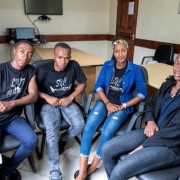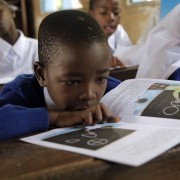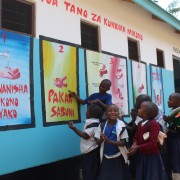Speeches Shim
Engaging local communities in data collection is an effective approach for promoting community involvement and building commitment to biodiversity conservation. In Tanzania, the US Agency for International Development Promoting Tanzania’s Environment, Conservation, and Tourism (USAID PROTECT) activity supported communities to collect and manage conservation data, so as to inform future strategies and plans, make decisions, engage stakeholders, and resolve conflict.
Combating wildlife crime is a complex conservation challenge, and to successfully support change, the United States Agency for International Development Promoting Tanzania’s Environment, Conservation and Tourism (USAID PROTECT) activity also engaged non-traditional actors, such as the media, the private sector, parliament, etc. in conservation initiatives, in addition to a broader group of stakeholders.

Youth are a significant part of the population affected by HIV/AIDS in Tanzania’s Arusha region. Fortunately, some youth have found comfort in teen clubs set up by USAID’s Boresha Afya (Improve Health) activity. These clubs consist of support groups for children aged 10-19 who are living with HIV, and are designed to help HIV-positive adolescents support each other. The clubs address the psychological and clinical needs of adolescents so that they feel confident, stay on treatment, and prevent transmission of the virus to their own future partners or children.

Like many Tanzanian communities, parental engagement in children’s academics and support for their learning at home was very low in Ruvuma regions Msindo Ward. Many primary schools had no storybooks for pupils to read at school or in their homes. As a result, first and second grade pupils’ reading abilities were very poor. Pupils had no interest in reading, and teachers did not trust pupils to take books home and bring them back the next day. Teachers thought if pupils were given books, they would either lose them or damage them.

When USAID's Water Resources Integration Development Initiative (WARIDI) began designing improvements to water, sanitation and hygiene (WASH) facilities at 25 primary and secondary schools, students from Muungano and Magubike Primary Schools in Tanzania’s Iringa region shared their difficulties accessing the toilets and washing their hands. Challenges included lack of separate facilities for boys and girls, no changing rooms or hygiene facilities to support girls during menstruation, lack of water access, and inaccessible latrines for students with physical disabilities.


Comment
Make a general inquiry or suggest an improvement.